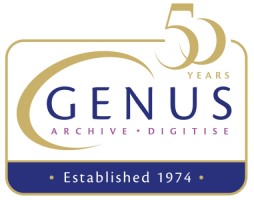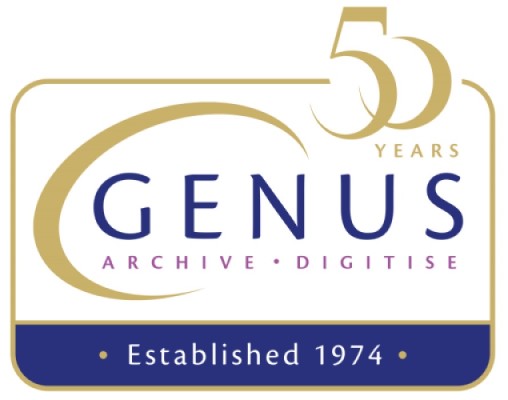Genus is proud to report on the installation of a book2net Spirit Advance book scanner for self-service use at the University of Birmingham library. Here, Genus discusses the project with Elaine Lewis, Service Development Manager.
Background
University of Birmingham Library delivers services to over 9 libraries on 4 different sites. The Spirit scanner is located in the Main Library at the heart of our Edgbaston campus. The Main Library, which opened in 1959, is our largest and busiest library, averaging over a million visits a year, predominantly from University of Birmingham staff and students but we also allow access to the wider community. Autumn 2016 will open an exciting new chapter for us when we move into a new, purpose built Library and Research Annexe which will provide improved access to our vast University collections and cultural heritage in outstanding facilities. The building is being designed in such a way that it will provide a more efficient use of space, energy and resource for our users. Students will benefit from a variety of learning spaces and flexible, technology-rich training rooms. What is the nature of the scanning service you provided pre Spirit Advance? We offered public scanning via flatbed scanners attached to PCs. High usage meant they were prone to damage. Pre Spirit Advance, staff scanned items on an MFD.
Have you seen increased digitisation in the library by users since installing the Spirit Advance?
Use of the flatbed scanners was not routinely measured but we know that use of the public area Spirit scanner has been consistently high. We did a soft launch in August 2014 and without any promotion, at our quietest time of year, it was quickly registering 500+ scans per day. The term-time average is approximately 1800 scans per day.
As well as students and library users having a Spirit Advance to use, you also have a second unit for staff to use. Please tell us how this unit is utilised and the advantages the Spirit has offered with this service.
The Spirit is used to scan chapters of books or whole items as part of a service for students with disabilities. This work proved to be very time consuming and problematic when using the old photocopier, but using the scanner has simplified and speeded up the process. We also use the scanner to copy articles or book chapters for patrons using our postal photocopy/scanning service. The scanner is sometimes used to make copies of articles and book chapters for an interlibrary loan service. We will use the scanner in preference to the photocopier, to scan and then print an article, as the copying stage is much faster and easier with the scanner. We also scan whole dissertations for international customers.

How did you come across book2net scanners?
After researching what was available on the market and what was being used in other higher education libraries, we attended a book2net conference day at the British Library in January 2013. This allowed us to try out a range of book2net products, including the Spirit.
What do you like about the Spirit Advance?
Public use:
The best thing about the Spirit Advance is that we can now offer a free high quality scanning service to students. The service more or less runs itself, with minimal need for staff intervention – the scanner stays on all the time; there have been no technical issues, (apart from one student forcing in a USB incorrectly and damaging the port) and because it is so straightforward to use in non-expert mode, students seem to get the hang of it without needing any help from staff.
With significantly lower power consumption than a photocopier and using no paper or toner, the scanner is also helping to reduce our carbon footprint.
Staff use:
It makes things a lot easier: in terms of speed, quality and being easy to use in general.
Speed:
It captures images very quickly; gets rid of the need to try and position the book correctly upside down underneath the lid of the photocopier. It has made a big difference in reducing the time taken to prepare scans of texts for students requiring accessible formats such as large print, in which the OCR function has also been useful.
Quality:
It is easy to see what you are scanning with an upward-facing scanner bed and live preview on screen; there is a good range of tools to help tailor scans to their purpose e.g. frame a small area, change saved file type; finger removal tool very useful when awkward binding means pages need to be held down during scans; highly detailed scans mean that poor original copies do not pose as much of a problem to reproduce compared to using the photocopier (has been especially useful when making copies of old theses which were often produced on typewriters and have faded significantly over the years); level of light picked up by the lens and the switch on light ensure good quality copies.
Ease of use:
It is easy to delete and rescan if the scan does not come out right the first time; quick and easy to position items to be scanned with the adjustable bed and space for book spines; flexibility with choice of methods by which scans can be saved e.g. memory stick, email; ability to cope with larger file size makes the process more efficient and means less stopping and starting to set up all the options after every few pages scanned, which has been necessary on previous office equipment; touch screen is more intuitive than just pressing buttons, especially being able to zoom in by dragging your finger over the image you’ve just scanned.
Why did you choose the Spirit Advance over other book scanners available in the market?
We knew there was likely to be high demand for a free digital scanning service and we were looking for a scanner that could cope with a high volume walk-up on demand service, 24/7. Feedback from other universities offering a similar service was that the Spirit was robust and reliable. We also felt that the non-expert mode for users was the most straightforward of the scanners we looked at, and ideally suited for public use, whilst the functionality of the advanced software option met our requirements for staff use.
Have you collected feedback from users of the Spirit Advance?
We conducted a small survey of users in the autumn term, shortly after installation. We had respondents from a range of University departments, (staff and students), as well as visitors including one pupil who was part of a school visit! Feedback was very positive with 89% of respondents saying the scanner was either “excellent” or “very good” for their purposes.
Has the installation of the Spirit Advance seen a decrease in the amount of photocopying taking place in the library? I.e. a positive environmental impact.
At the moment it is too early to measure the impact on photocopying but a number of respondents in our survey did indicate that they were photocopying less now that they have access to the scanner.
Would you recommend the Spirit Advance?
Yes – we are very happy with the Spirit’s performance and feedback from users has been extremely positive, with comments such as:
“I found it very useful but it is very busy at times and I wish there was another scanner in the library”
“Would like another in the library – absolutely love it”
We hope to acquire additional Spirit scanners and are planning to allow scan to email as well as to USB.
Genus would like to thank Service Development Manager, Elaine Lewis, at the University of Birmingham for her contribution to this case study.




Comments are closed.